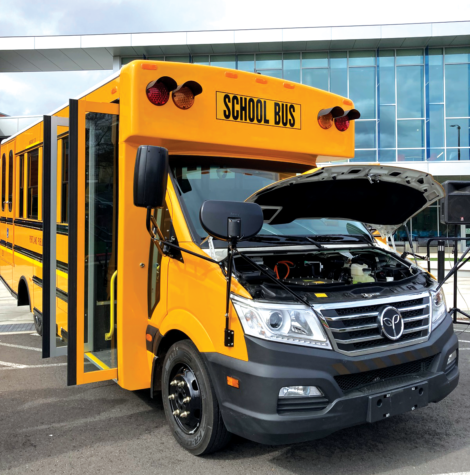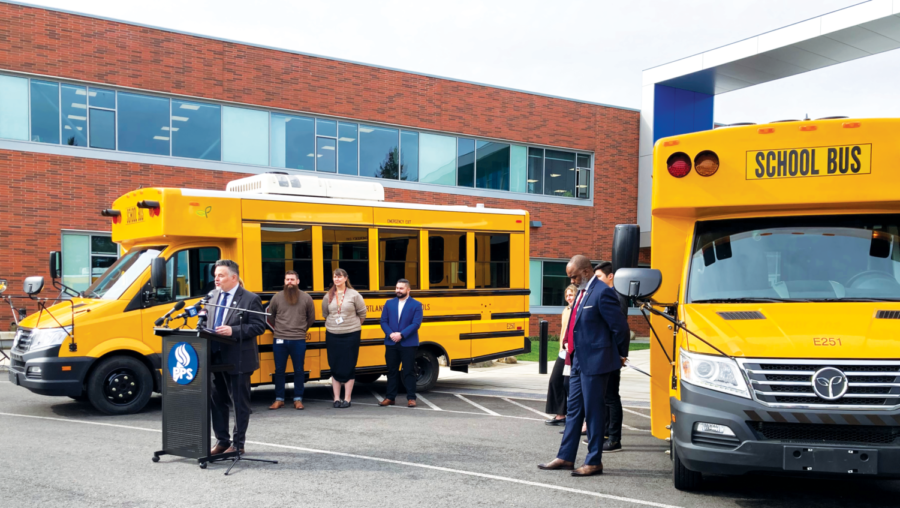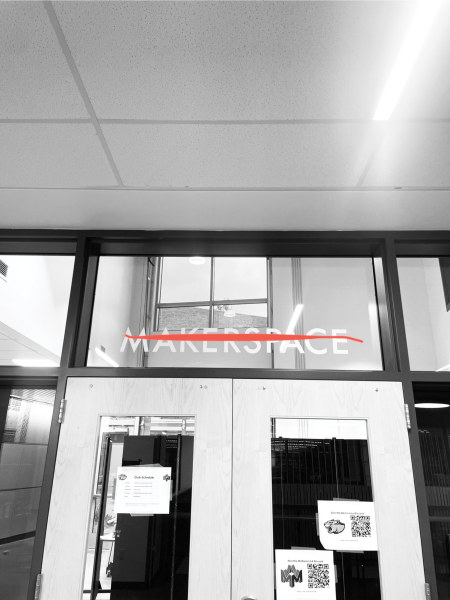PPS takes steps toward net-zero carbon emissions by obtaining electric school buses
Superintendent Guadalupe Guerrero making remarks at the press conference where the buses were unveiled. The purchase of the buses is among the first steps the district has taken to meet the commitments listed in its CCRP.
Portland Public Schools (PPS) unveiled two brand new electric school buses at a press conference here on April 5. The buses, which will transport special education students, were acquired in conformance to PPS’s Climate Crisis Response Policy, where they pledge to cut the district’s carbon emissions in half by 2030.
With these buses, PPS has become the first school district in Oregon to utilize zero-emission vehicles.
The buses are the first of many.
“We are excited to showcase—preview—for our community, for all of you, the first two of what hopefully will grow into a whole fleet of electric vehicles that will be transporting our students here around the city of Portland,” PPS superintendent Guadalupe Guerrero stated.
Transportation is responsible for the largest percentage of carbon emissions produced by the district, and included in this number are emissions from both district-owned and charter vehicles. Most yellow school buses in the district are chartered from First Student, meaning that the company will also need to make a change for emissions to reduce significantly.
Terry Rainey, the director of student transportation, explained that PPS will make electric buses a necessity on contracts between them and bus chartering services in the future.
“It will be a requirement when our contracts moving forward,” Rainey said. “And having that as part of our climate justice goals, they will comply.”
The school district partnered with Portland General Electric (PGE) and Pacific Power to acquire the new vehicles. PGE’s Electric School Bus fund allows public school districts that are in PGE’s service area to apply for funding to assist in the purchase of up to three electric school buses. The fund, in turn, is supplied by the Oregon Department of Environmental Quality’s Clean Fuels Program.
In addition to paying the difference between the cost of an electric and traditional school bus, PGE will install charging stations for the buses and provide technical assistance, which includes “site assessments, cost-benefit analysis, vehicle and charger selection support, and driver and mechanic support,” according to a fact sheet provided by the company.
The new buses have yet to hit the streets. When they arrived, they were up to California safety codes, which do not entirely align with those in Oregon. Among other things, the buses came with two stop signs instead of one and their labeling on the front and back was not reflective enough.

Brandon Coonrod, the assistant director of student transportation, said that once the buses are fully up to code and drivers are properly trained to operate the new equipment, they will serve around 25 students a day.
“It seems low, but for special needs students, that’s a fair amount of students, based on the mileage and travel that we’ll put on with these,” Coonrod said.
Coonrod explained that PPS needs to obtain more funding before any more buses are added to the district’s repertoire.
“Through PGE, through Multnomah County, they’ve supplied us with a grant coming up that we’re going to get another bus out of. We’re looking anywhere and everywhere we can, literally under rocks, for money that we can get to help fund these buses because they are expensive,” Coonrod stated. “They’re about twice to two and a half times what a normal bus costs. But, over time, the fuel will help recoup that.”
However, Coonrod is optimistic that electric buses will eventually cost less.
“As the technology advances, both in charging and in battery technology, we do think that the price of the buses will come down,” Coonrod said.
The process of fully electrifying student transportation vehicles will take time, yet the district is working to make good on the pledges they committed to last spring.
Thisbe Delamarter (she/her) is a senior who loves reading, learning and soccer. She loves journalism because she enjoys investigating and sharing new perspectives.







